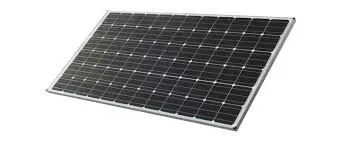AC Solar Panel Cost and Investment Insights for Homeowners
Understanding the Price of AC Solar Panels
In recent years, the adoption of solar energy has skyrocketed, driven by the needs for sustainable energy solutions and the desire to reduce electricity bills. Among the various options available, AC solar panels have gained considerable attention due to their innovative technology and efficiency. Understanding the price of AC solar panels is crucial for homeowners and businesses alike, as it directly influences the overall cost of going solar.
AC solar panels differ from traditional DC (direct current) panels in their ability to convert sunlight into alternating current directly within the panel itself. This is achieved through the incorporation of microinverters, which optimally convert the solar energy produced into usable electricity. The main advantage of AC panels is their enhanced efficiency, particularly in situations where shading may affect individual panels. By allowing each panel to operate independently, AC systems can maximize energy production, leading to better overall performance and higher energy yields.
Understanding the Price of AC Solar Panels
Another aspect influencing pricing is the scale of installation. For larger installations, homeowners and businesses may benefit from economies of scale, as bulk purchases can often lead to significant discounts. However, for smaller systems, the price per watt can be higher due to fixed costs associated with installation, permits, and overhead. This variation in pricing emphasizes the importance of obtaining multiple quotes from reputable installers to ensure the best possible deal.
ac solar panel price

In addition to the type of solar panel and installation size, several other factors play a role in determining the overall cost. Location is significant; areas with higher sunlight exposure can yield greater energy production, making solar investments more attractive. Furthermore, local incentives, such as tax credits and rebates, can reduce upfront costs considerably. In the United States, the federal solar tax credit allows homeowners to deduct a percentage of their solar system costs from their federal taxes, greatly assisting in making solar more affordable.
Another consideration is the long-term benefits associated with solar energy. AC solar panels generally have a lifespan of 25 years or more, during which time they can lead to substantial savings. Homeowners can expect to offset a significant portion, if not all, of their electricity costs. When calculating the return on investment, it’s essential to consider factors like energy savings, increased home value, and potential utility rate hikes, which can further enhance the financial appeal of solar energy.
Finally, market trends and global supply chains also affect solar panel pricing. Fluctuations in the cost of raw materials like silicon can lead to changes in prices for solar panels. It is essential for prospective buyers to stay informed about market conditions and work with experienced solar consultants who can provide guidance on the best purchasing strategies.
In conclusion, while the price of AC solar panels may be higher initially compared to traditional options, the long-term benefits, energy efficiency, and potential savings provide a compelling case for their adoption. As technology continues to advance and more consumers become aware of the advantages of solar energy, AC solar panels will likely play an increasingly significant role in sustainable energy solutions. With careful research and planning, the investment in AC solar panels can yield remarkable returns and contribute positively to both individual finances and the environment.
-
Unlocking Energy Freedom with the Off Grid Solar InverterNewsJun.06,2025
-
Unlock More Solar Power with a High-Efficiency Bifacial Solar PanelNewsJun.06,2025
-
Power Your Future with High-Efficiency Monocrystalline Solar PanelsNewsJun.06,2025
-
Next-Gen Solar Power Starts with Micro Solar InvertersNewsJun.06,2025
-
Harnessing Peak Efficiency with the On Grid Solar InverterNewsJun.06,2025
-
Discover Unmatched Efficiency with the Latest String Solar InverterNewsJun.06,2025







